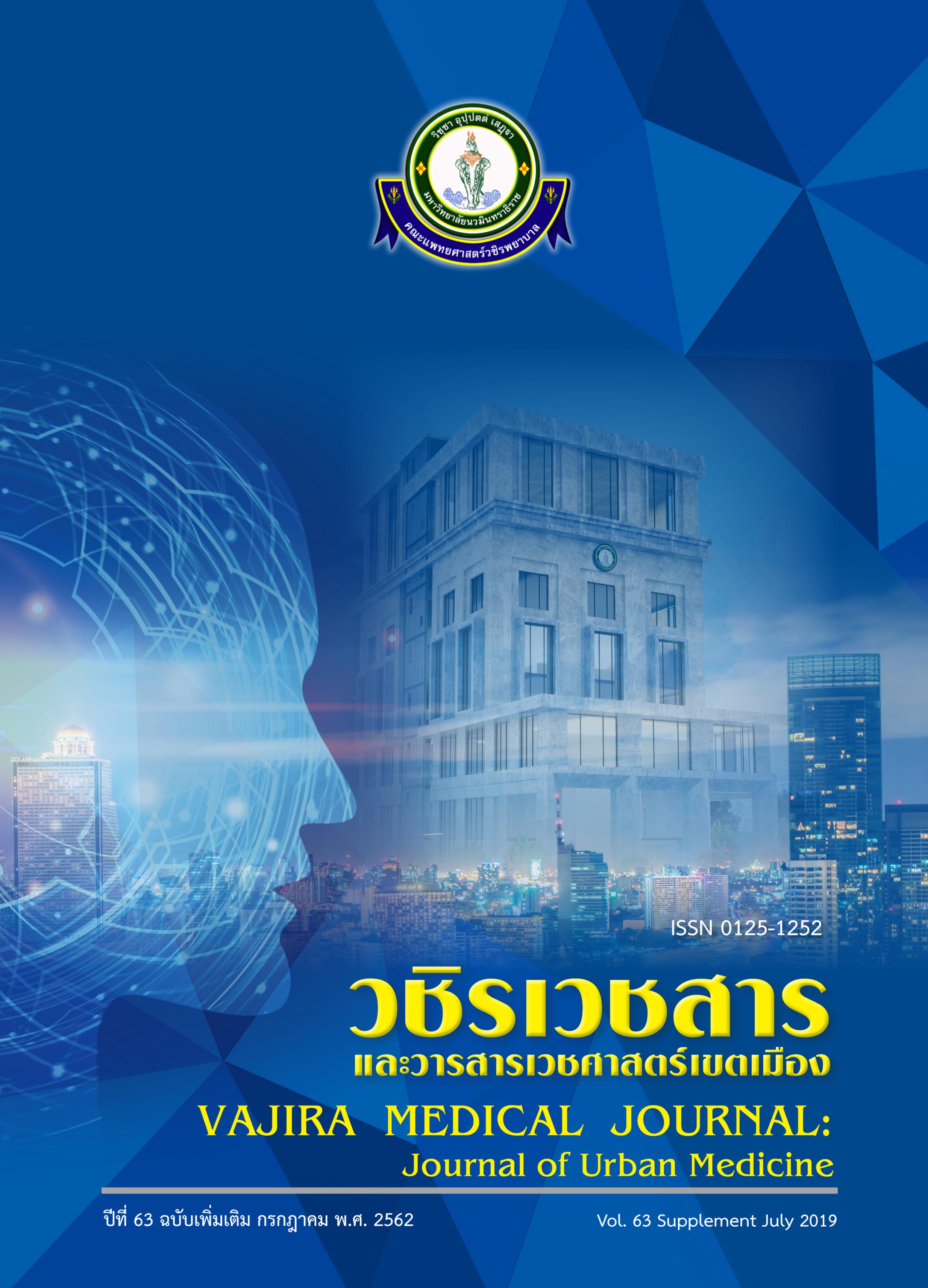The Effect of Appropriate Drug Use Information among Public Health Volunteers in Bangkok Metropolitans
Main Article Content
Abstract
Objective: To examine the effect of appropriate drug use information among public health volunteers in Bangkok metropolitans.
Method: This study is a one group quasi-experimental research. A purposive sampling technique was used to select public health volunteers who have trained in Faculty of Medicine Vajira Hospital from six public health centers. All samples participated in appropriate drug use information activities five times. Pretest and posttest were used before and after the project. Data were analyzed using frequencies, percentages and means. Comparative analysis of mean scores using the paired t-test was also applied to the study.
Results: There were the total of 39 public health volunteers with average age 62.1 years. Most of them (97.4%) were females with an average 10.2 years of more than 10 times training experiences. Before enrolling in the appropriate drug use information activities, the average score was 10.1. However, average score increased to 12.3 after the training. The score after enrolling in the drug use information activities was significantly higher than that of before enrolling with p-value less than 0.001.
Conclusion: Proper drug use information activities could influence the increment of knowledge among public health volunteers. However, drug use information among health volunteers should be evaluated and monitored continuously.
Downloads
Article Details
References
2. Thai Health Promotion Foundation. “Selfmedication” Bad Results than Expected [cited March28, 2016]. Available from: http://www. thaihealth.or.th/Content/ Self-medication” Bad results than expected.html.
3. Tuntiean P. Medication Use Behaviors among Thai people. Journal of Hematology and Transfusion Medicine. 2009; 19(Suppl 4): 310.
4. Naiyapatana W. Health Problems, Medicine Used Problems, and Medicine-Used Behaviors among Elderly in the Community of Phramongkutklao Hospital Personnel’s Residence. Journal of Nursing and Education. 2010; 3(Suppl 1).
5. Thai Health Promotion Foundation. Crisis, Medication, The Big Story that Thai People Overlook 2014 [cited March28, 2016]. Available from: http://www.thaihealth.or.th/ Content/23385- Crisis, Medication, The Big Story that Thai People Overlook html.
6. Navamindradhiraj University and Thai NCD net. Bangkok Health Awareness Center, Bangkok People Health Report. Bangkok 2016.
7. Komwong D, Sangkhawat T. Factors Affecting Drug Use Behaviors of Village Health Volunteers. Thai Pharmaceutical and Health Science Journal 2012; 7(3):121-6.
8. Wangpradit O, Chuaybamroong R, Sinprajakpol K, Prasert W. Effect of Series of Drug Use Information and Activities on Drug Use Knowledge and Behavior of Village Health Volunteers. The Public Health Journal of Burapha University. 2015; 10(1):87-95.
9. Kaewwanrat A. How to Provide Health Knowledge. 2 ed. Chiang Mai: Unity and Progression Solution; 2011.
10. Shrestha S. A conceptual model of empowerment of the female community health volunteers in Nepal. Education for Health. 2003; 16(3):318-27.


